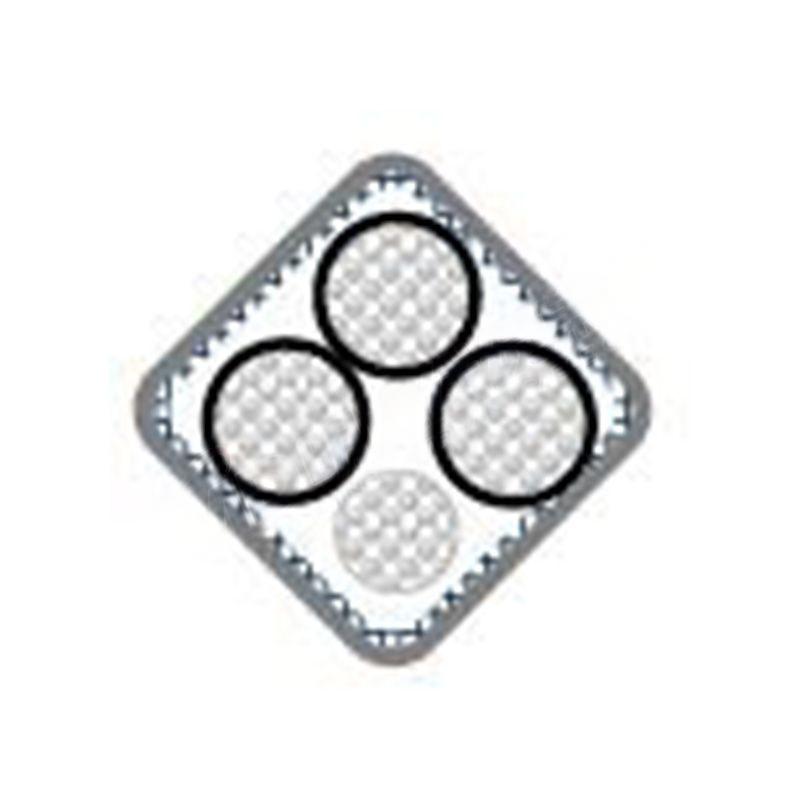ਨਵੰ. . 08, 2024 17:13 Back to list
4 way ball valve
Understanding the 4-Way Ball Valve A Comprehensive Guide
The 4-way ball valve is a crucial component in many industrial and mechanical systems, offering versatility and efficient control of fluid flow in multiple directions. Unlike traditional 2-way valves that allow flow in a single direction, the 4-way ball valve is designed to control flow pathways in more complex piping systems. This article delves into the structures, functions, benefits, applications, and maintenance of 4-way ball valves.
Structure and Operation
A 4-way ball valve features a hollow, perforated sphere (the ball) that rotates within the valve body to control fluid flow. The ball has four ports – typically two inlet and two outlet ports, allowing for the diversion or mixing of fluid in various configurations. The operation of the valve involves turning the ball 90 degrees, effectively changing the path of the fluid. This is crucial in systems where fluid mechanics demand flexibility and control.
The valve can operate in different configurations, such as the cross configuration, where the fluid can be directed from one pair of ports to the other, or the T-configuration, which allows fluid to flow from one inlet to two outlets. This adaptability makes 4-way ball valves suitable for applications requiring precise control over fluid flow direction.
Benefits of 4-Way Ball Valves
One of the primary advantages of the 4-way ball valve is its ability to provide quick and reliable switching between flow paths. The design minimizes flow resistance, resulting in lower pressure drops and enhanced system efficiency. Furthermore, the sealing capability of ball valves is superior, ensuring minimal leakage during operation. This reliability makes them ideal for applications where precision and safety are paramount.
In addition to their operational advantages, 4-way ball valves are relatively easy to operate, requiring little torque to turn the valve. This feature not only allows for manual operation with ease but also enables effortless integration with automation systems, enhancing overall operational efficiency.
Applications Across Industries
4-way ball valves have versatile applications across various industries, including
1. Hydraulic Systems They are often used to redirect hydraulic fluid in hydraulic machinery, supporting diverse functions such as lifting, digging, and moving heavy objects.
2. Pneumatic Systems In pneumatic applications, these valves manage the flow of compressed air to actuators and cylinders, controlling movement and operation in equipment.
4 way ball valve

3. Heating and Cooling Systems The valves can be utilized in HVAC systems to control the flow of water, allowing for system balancing and temperature control.
4. Chemical Processing In the chemical industry, 4-way ball valves are essential in facilitating the mixing of different chemicals or diverting flows in batch processing systems.
5. Water Treatment These valves play a critical role in water treatment facilities, managing flow paths in filtration and purification processes.
Maintenance Considerations
To ensure optimal performance of 4-way ball valves, regular maintenance is essential. Here are some recommended practices
- Regular Inspection Periodically check the valve for any signs of wear, corrosion, or leakage. Inspect the seals and gaskets to prevent fluid loss.
- Lubrication Lubricate the valve components as needed to ensure smooth operation and avoid seizing.
- Cleaning Keep the valve free of debris and obstructions that could hinder performance.
- Testing Conduct performance tests to ensure the valve responds accurately to operational commands.
Conclusion
In summary, the 4-way ball valve is a versatile and essential component in many industrial applications. Its ability to manage fluid flow in multiple directions provides significant advantages in efficiency and control. By understanding its structure, benefits, and applications, as well as implementing proper maintenance practices, industries can ensure the long-term reliability and effectiveness of these critical components. As technology advances, the role of 4-way ball valves will continue to expand, solidifying their importance in modern engineering and industrial processes.
Share
-
Reliable Wafer Type Butterfly Valves for Every IndustryNewsJul.25,2025
-
Reliable Flow Control Begins with the Right Ball Check ValveNewsJul.25,2025
-
Precision Flow Control Starts with Quality ValvesNewsJul.25,2025
-
Industrial Flow Control ReliabilityNewsJul.25,2025
-
Engineered for Efficiency Gate Valves That Power Industrial PerformanceNewsJul.25,2025
-
Empowering Infrastructure Through Quality ManufacturingNewsJul.25,2025